Tokyo shopping fits in high-end and offbeat fashion, traditional crafts, vintage wares, all manner of only-in-Japan souvenirs, plus that gadget you didn’t know existed but now desperately want.
Whether you prefer browsing in luxe department stores or rummaging for secondhand treasures, these 10 Tokyo neighborhoods meet all your shopping needs.
1. Harajuku and Aoyama
Best overall
Advertisement
The twin neighborhoods of Harajuku and Aoyama contain the youthful shopping strip Takeshita-dōri and the stylish boulevard of Omote-sandō. Sophisticated high fashion rules the Aoyama end of Omote-sandō, while in experimental Harajuku, haute couture is layered with vintage goods. And then there is Ura-Hara, the maze of backstreets behind Omote-sandō, where you’ll find eccentric shops and secondhand stores. Get started at Laforet, 6% Doki Doki and Sou-Sou for clothes and accessories; Kawano for vintage kimonos; and RagTag for preowned fashion. If you’re on the hunt for rare sneakers, Worm Tokyo has arguably the best collection in the city.
 Nakamise-dōri. 2p2play/Shutterstock 2. Asakusa
Nakamise-dōri. 2p2play/Shutterstock 2. Asakusa
Best for souvenirs
The Asakusa neighborhood was once the heart of Edo’s low city, home to artisans and merchants. Travelers still flock here in droves to see Sensō-ji, Tokyo’s oldest Buddhist temple, but the small lanes and winding alleyways are full of surprises, including the vintage curios at Tokyo Hotarudo and the ceramics and lacquerware at Yamakichi. For straightforward gift shopping, Nakamise-dōri (leading up to the temple) is good for trinkets – try the back streets for fewer crowds and better-quality items. The long stretch of Kappabashi-dōri is renowned for its abundance of culinary-supply shops.
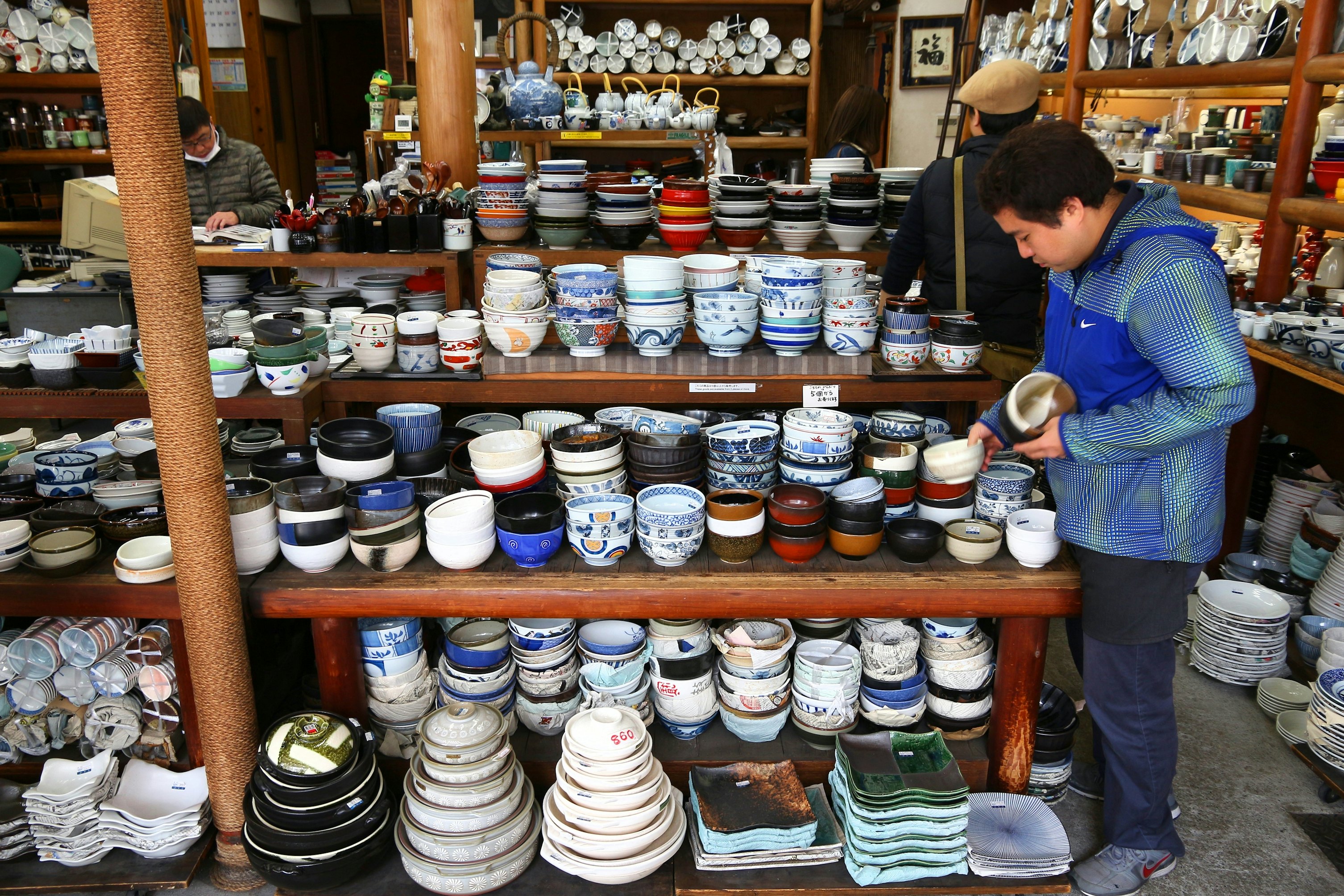 Kappabashi-dōri. Tupungato/Shutterstock 3. Kuramae
Kappabashi-dōri. Tupungato/Shutterstock 3. Kuramae
Best for one-of-a-kind goods
Once a drab warehouse district along the Sumida-gawa (Sumida River), Kuramae has been refashioned as the place for young artisans to set up shop. Check out Camera for leather goods (and coffee); Maito for clothes colored with traditional, natural dyes; and Kakimori, where you can design your own notebook and ink color. Stroll around the district and you’re bound to find more boutiques with one-of-a-kind goods.
Planning tip: Carry some cash with you; traditional and smaller stores may not accept credit cards.
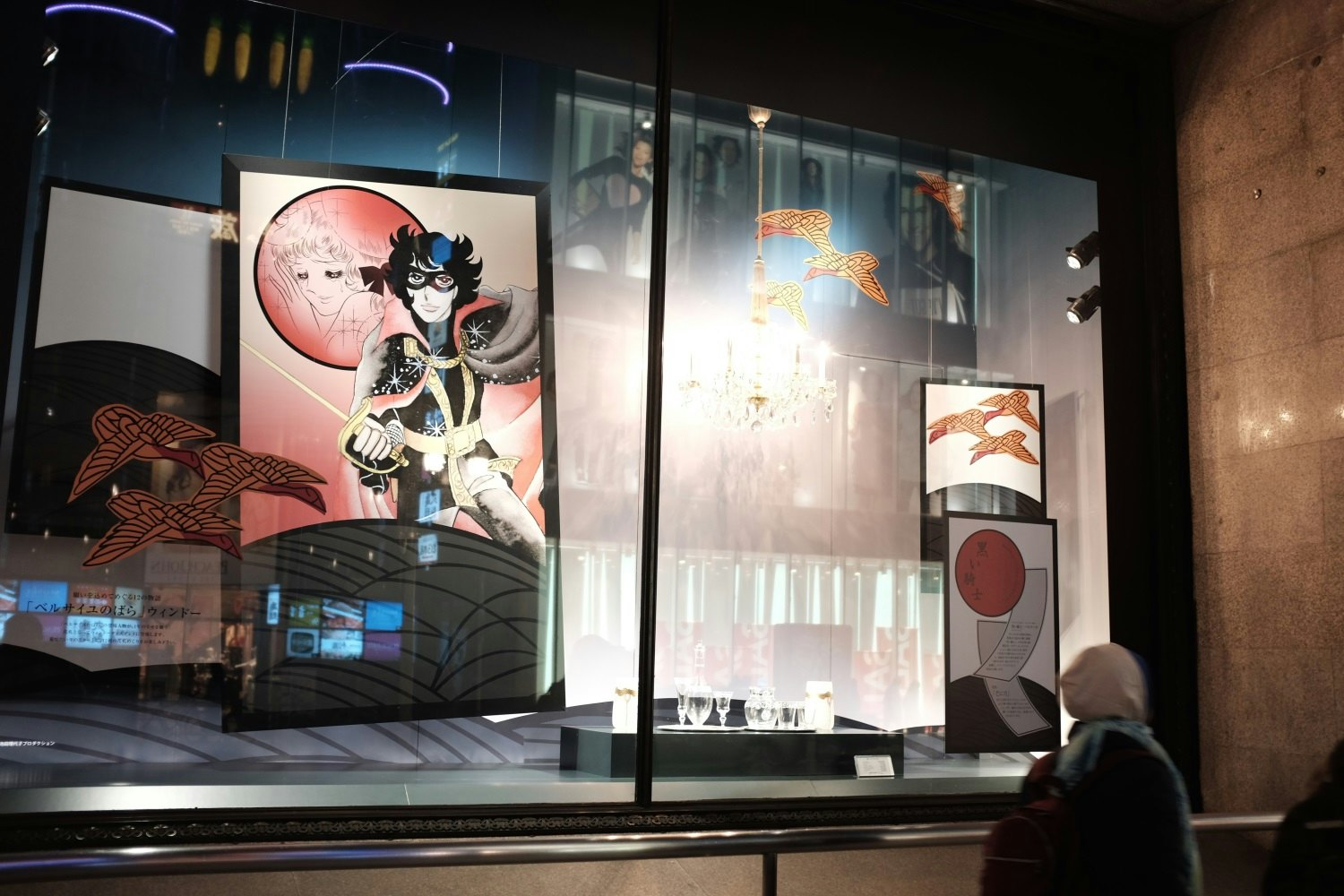 Window display at the Isetan department store in Shinjuku. Zengame/CC 4. Shinjuku
Window display at the Isetan department store in Shinjuku. Zengame/CC 4. Shinjuku
Best for variety
Advertisement
Shopping in Shinjuku can be a little overwhelming. From the moment you step out of the train station, the lights and noise make the whole neighborhood seem like the interior of a bustling pachinko parlor, but there are some great shops amid all the chaos. Isetan is one of Tokyo’s most revered department stores; Don Quijote fills the the something-for-everyone slot; and at Disk Union, music lovers can lose a day browsing the eight stories of secondhand vinyl and CDs. Bibliophiles should head to Kinokuniya’s main store – there’s a fantastic collection of English-language books and manga here.
Planning tip: Tokyo’s department stores have excellent basement food halls, called depachika, which are great for finding foodie gifts (or for a mid-shopping treat).
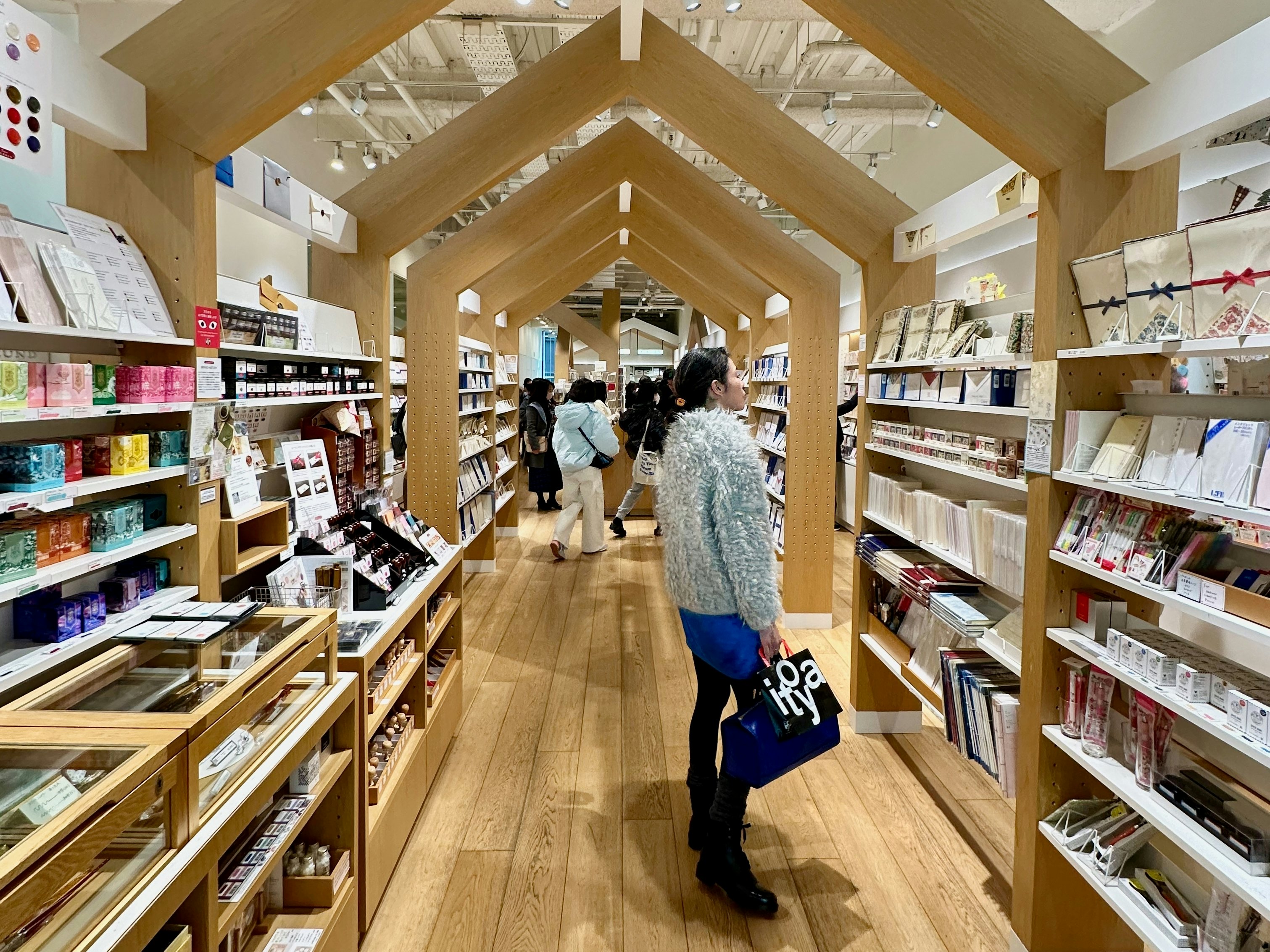 Itōya in Ginza. Carolyne Parent/Shutterstock 5. Ginza
Itōya in Ginza. Carolyne Parent/Shutterstock 5. Ginza
Best for glitz and glam
Ginza is one of Tokyo’s most affluent shopping districts. Upmarket boutiques and gleaming department stores include the classic Mitsukoshi and avant-garde Dover Street Market Ginza. There’s also the glitzy high-fashion mall Ginza Six, with the delightful Imadeya Ginza sake store (nicknamed the Liquor Beacon of Ginza) in the basement, where you can try several varieties before you buy. But tucked in between some of the more imposing facades are simpler pleasures, like the fine crafts at Takumi, the cigar collection at Davidoff of Geneva Ginza Shop and the nine floors of stationery and art supplies at Itōya.
Planning tip: There’s plenty to keep you interested on a shopping trip in Ginza, but it’s not recommended if you are in Tokyo on a shoestring budget. More and more stores, especially department stores, offer tax-free shopping to foreign tourists who spend over 5000 Japanese yen (US$34). Bring your passport and look for a tax-free sticker in the window.
 Tsutaya Books in Daikanyama. rayints/Shutterstock 6. Daikanyama and Naka-Meguro
Tsutaya Books in Daikanyama. rayints/Shutterstock 6. Daikanyama and Naka-Meguro
Best for books, boutiques and bohemian pieces
Daikanyama, a residential enclave of cafes and boutiques, is full of fashion and accessories specialists such as Okura, which sells garments colored with traditional indigo dyes. Bibliophiles should head to Daikanyama T-Site; in its maze of literary genres is a great collection of photo books and English-language novels by Japanese authors. Naka-Meguro, a stroll away, is Daikanyama’s more bohemian neighbor, home to secondhand stores, trendy cafes and hidden lounges. Vase, with its vintage clothing, is among the shopping highlights here.
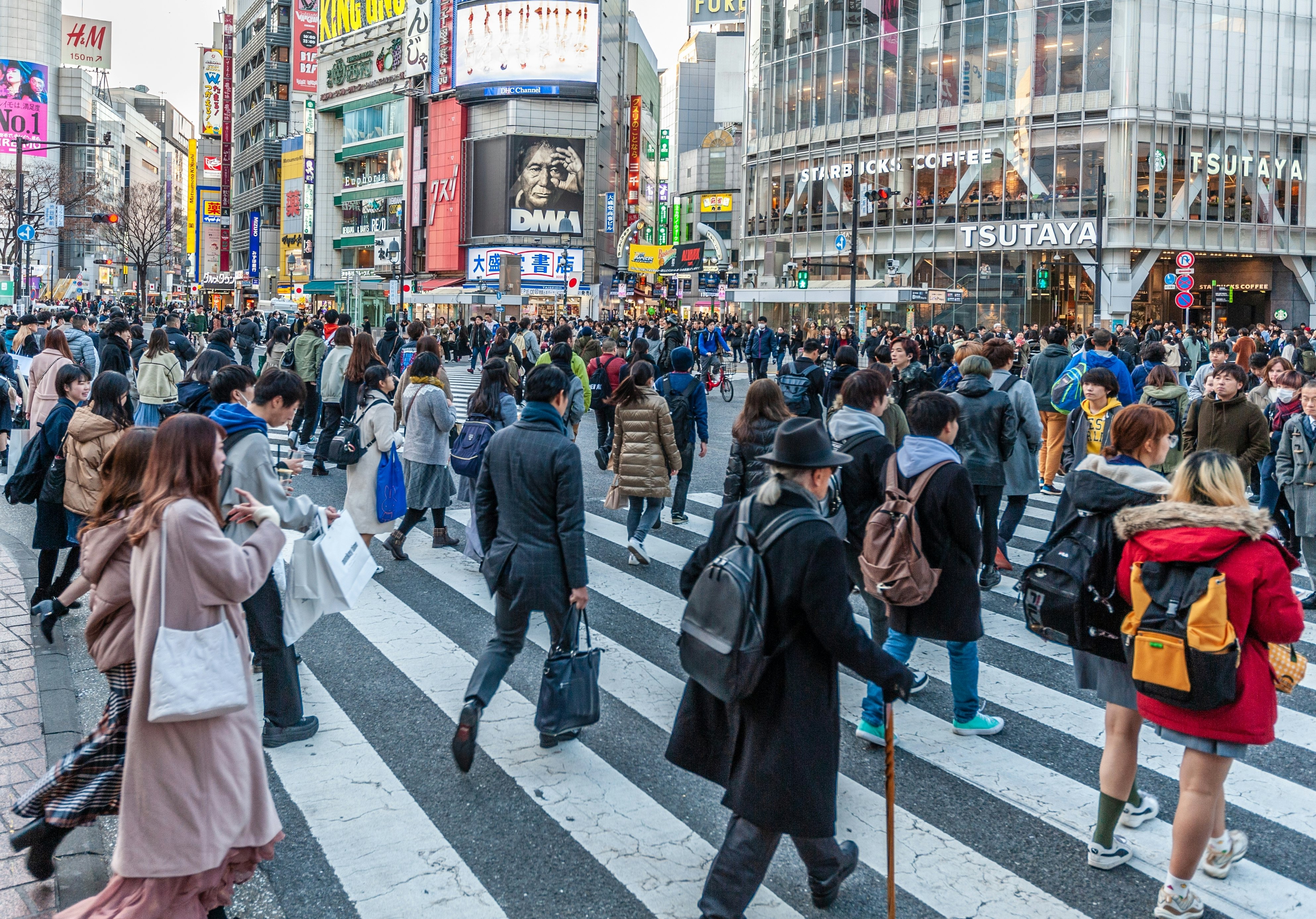 Shibuya Crossing. Goldilock Project/Shutterstock 7. Shibuya
Shibuya Crossing. Goldilock Project/Shutterstock 7. Shibuya
Best for the latest trends
Shibuya is a fountain of teen trendiness in Japan. Anyone older than 20 might feel a little out of their depth, but just amuse yourself in the madness. Music shops and cheap, outrageous apparel are everywhere, as are the hip kids who come to primp and pose. Check out the youth-focused fashion at Shibuya 109, and don’t miss browsing the floors of homewares, gadgets and accessories at Hands. Gamers should consider Shibuya Parco, where you’ll find stores dedicated to Nintendo and Capcom.
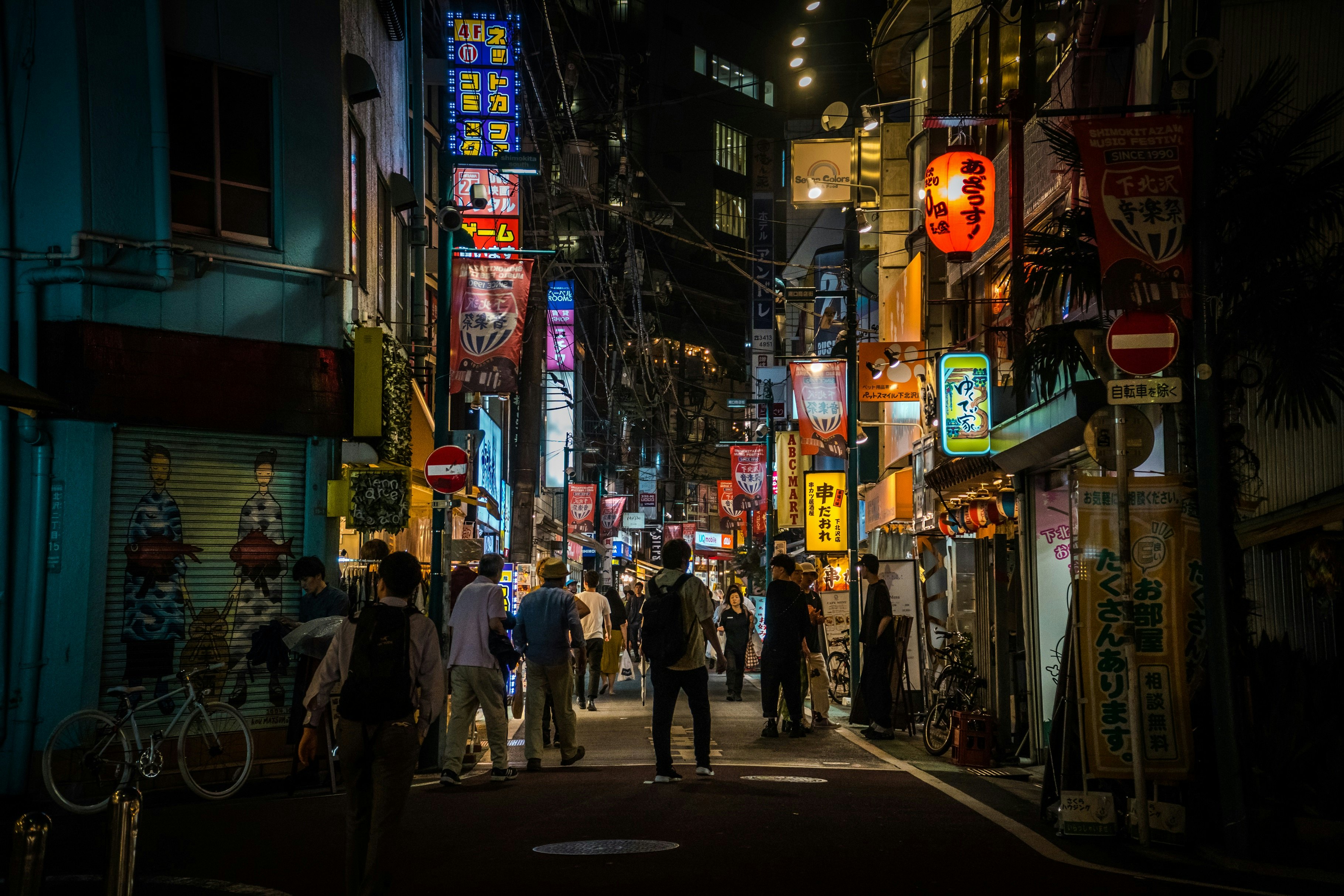 Shimo-Kitazawa. Norhafis Mohd Amin/Shutterstock 8. Shimo-Kitazawa
Shimo-Kitazawa. Norhafis Mohd Amin/Shutterstock 8. Shimo-Kitazawa
Best for vintage and vinyl
Southwest of Shibuya is the small neighborhood of Shimo-Kitazawa (aka Shimokita), a favorite haunt of students and arty types, with quirky shops, izakaya (pub-diners) and hole-in-the-wall bars. Stroll the narrow streets here to land on Tokyo’s highest concentration of vintage-clothing stores; iot, Lost Boy Tokyo and Desert Snow are among the best. Shimokita is also good for its record shops, like Flash Disc Ranch and Jet Set.
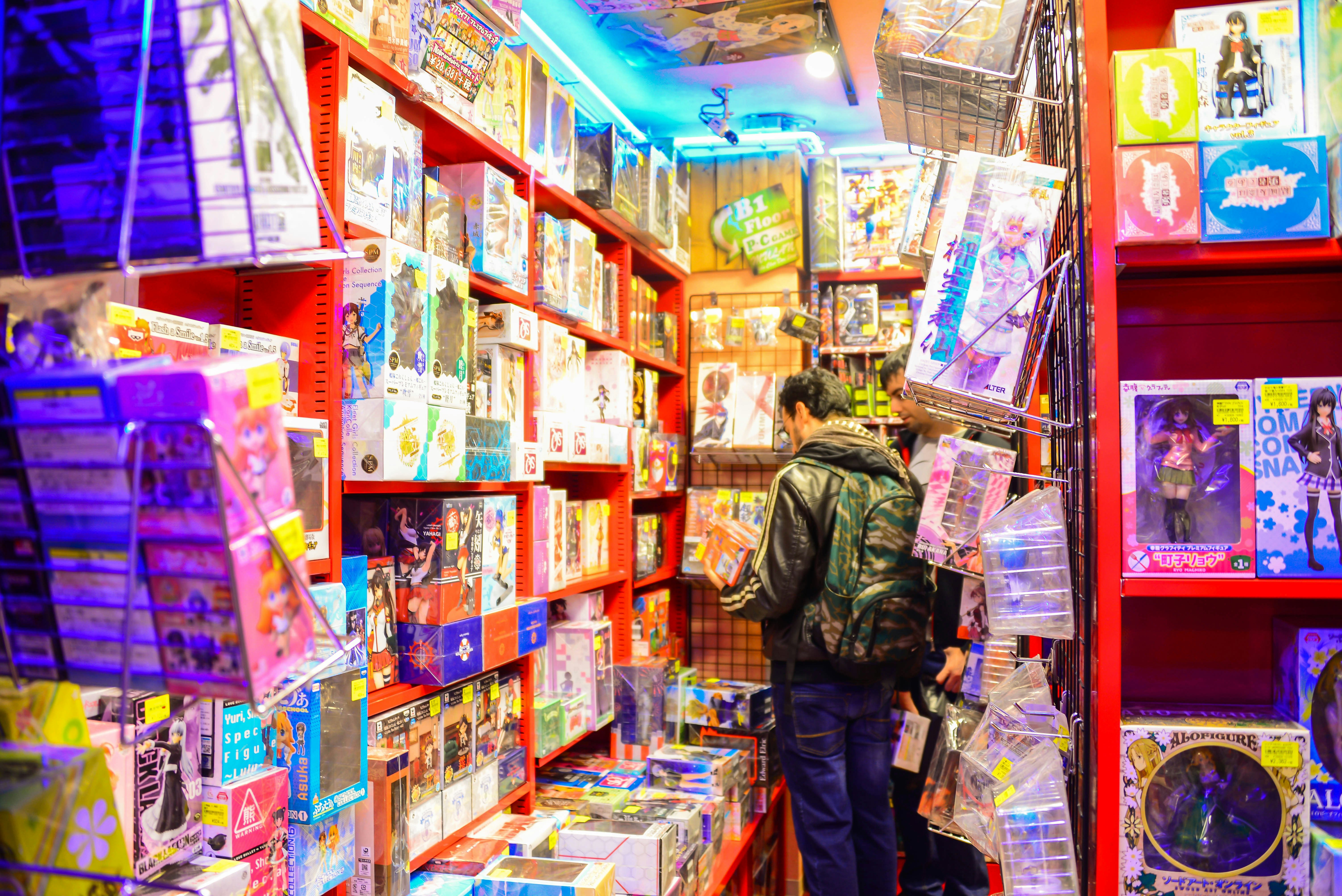 Akihabara anime store. Vassamon Anansukkasem/Shutterstock 9. Akihabara
Akihabara anime store. Vassamon Anansukkasem/Shutterstock 9. Akihabara
Best for electronics
Akihabara is Tokyo’s Electric Town district, and it’s easy to see why with stores like Akihabara Radio Center, an organized scrapyard of electrical components, and Yodobashi Akiba, which is believed to be the largest electronics store in the world. The neighborhood is also a center for otaku (geeks) and their penchant for anime, manga and Japanese pop culture. Among the stores catering to the otaku crowd is the huge Mandarake Complex, while Super Potato and Retro Game Camp are bursting at the seams with video game nostalgia. Also in the area is the excellent crafts bazaar 2k540 Aki-Oka Artisan, located under the train tracks.
Planning tip: Though bargaining is the norm in most of Asia, in Japan it’s not done, except at flea markets and the occasional electronics store.
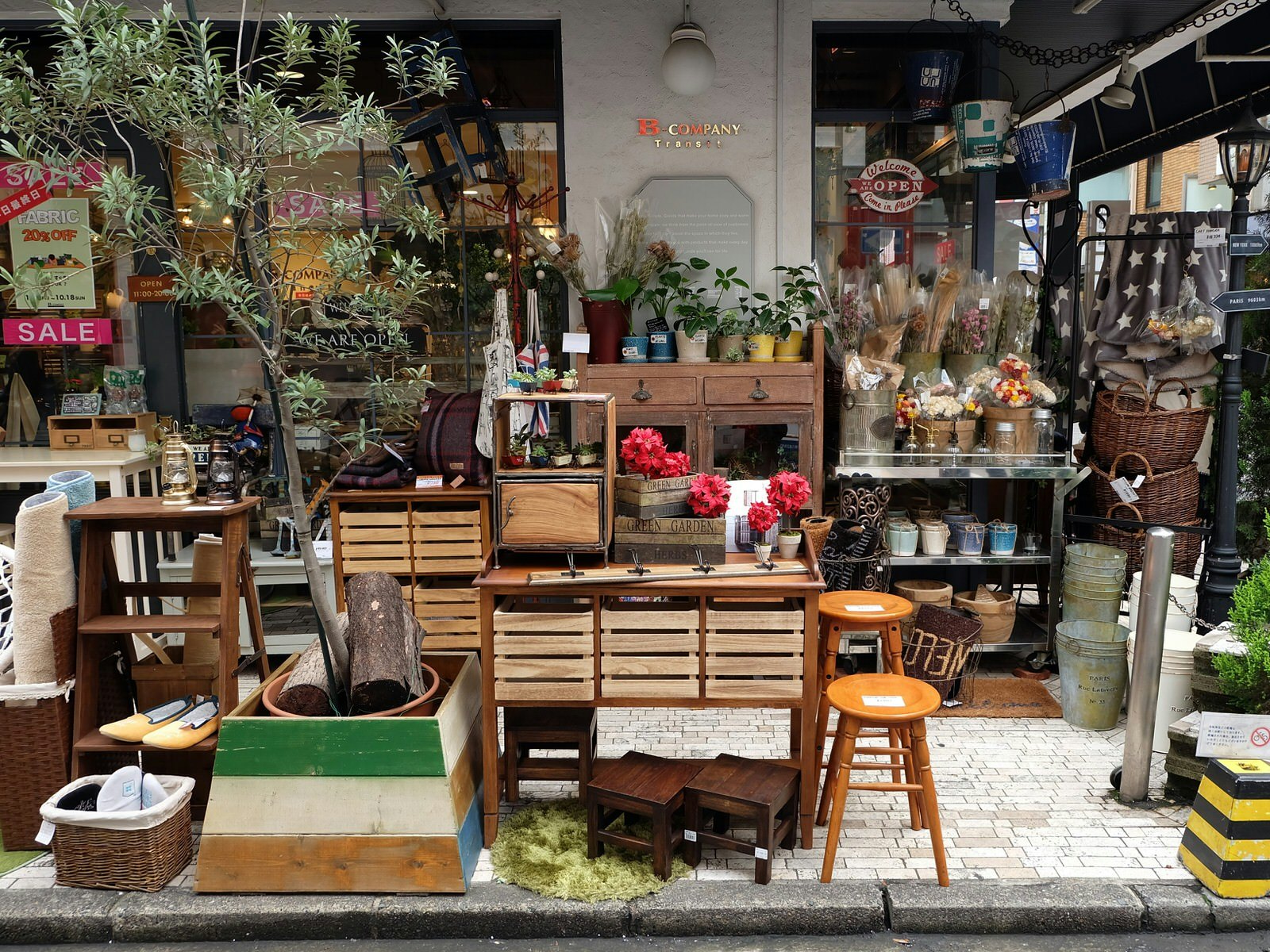 Kichijōji furniture display. everyday polkadot/Shutterstock 10. Kōenji and Kichijōji
Kichijōji furniture display. everyday polkadot/Shutterstock 10. Kōenji and Kichijōji
Best for kooky finds
Just west of Shinjuku, Kōenji is a bastion of counterculture, with lots of secondhand shops and unusual finds. Don’t miss the collection of street fashion stores inside the ramshackle Kita-Kore Building and the coveted vintage goods at easy-to-miss Sokkyō. Travel further west on the Chūō line to hit Kichijōji, which is a popular place to trawl for homewares. Start with the boho objets at Outbound and the antique ceramics at PukuPuku.
Planning tip: There are some good jazz bars in Kichijōji too – use them as an inspiration before perusing the record collection at Disk Union.

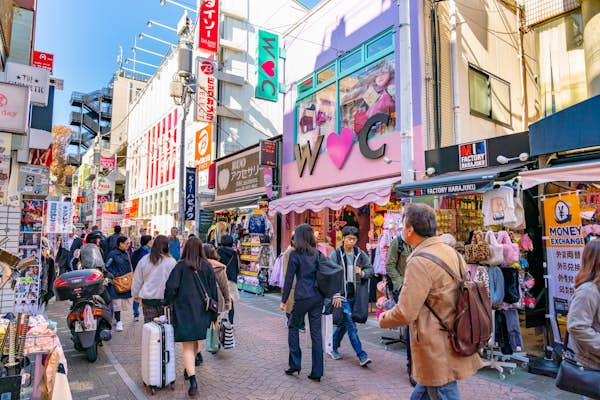
AloJapan.com